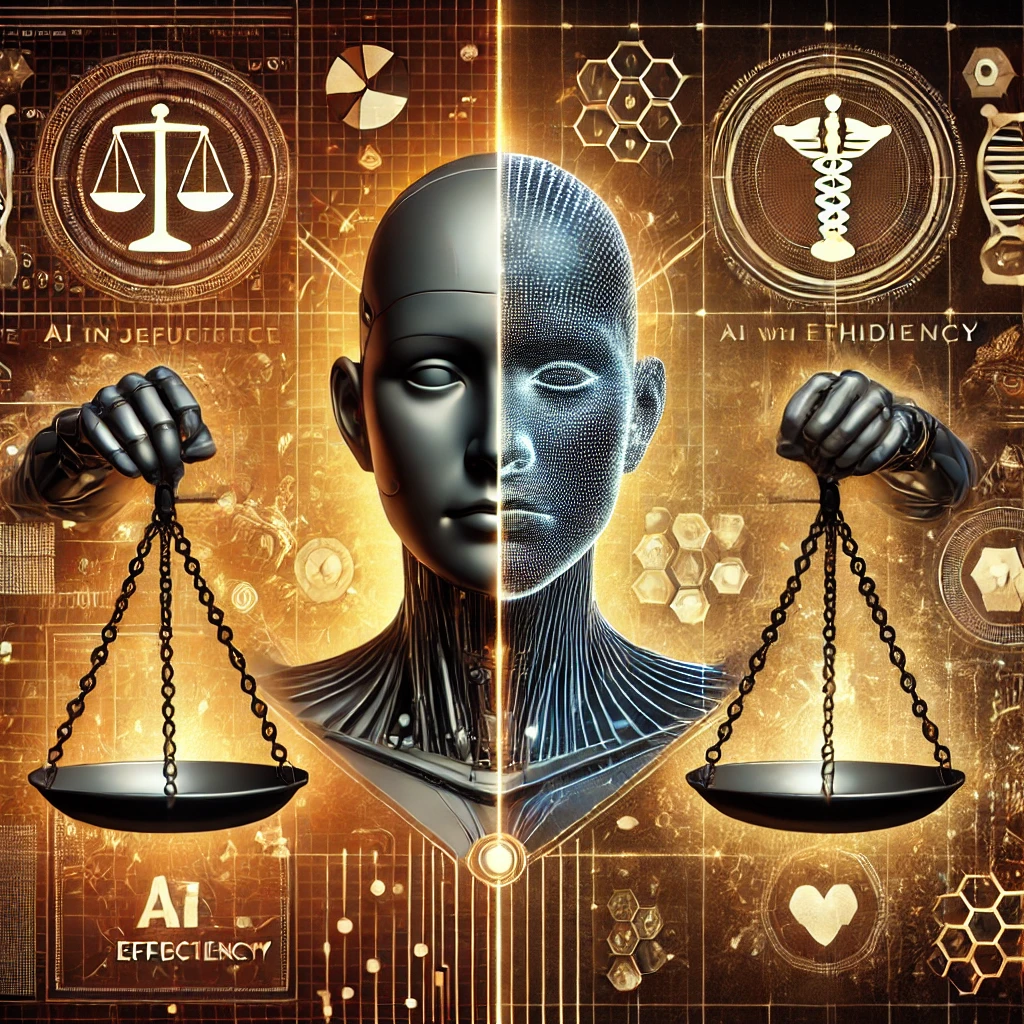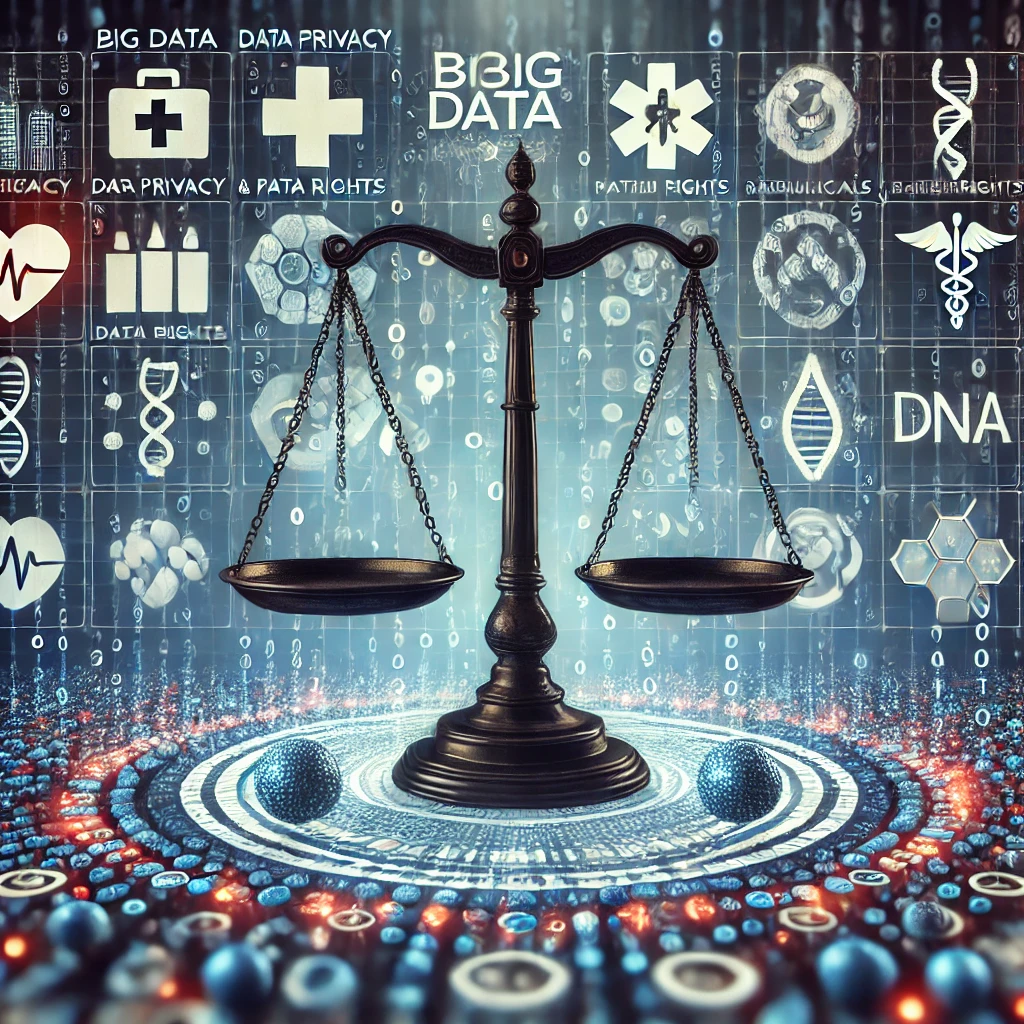AI in Judicial Decision-Making: Balancing Efficiency with Ethical Concerns
Introduction The rapid advancement of artificial intelligence (AI) has permeated various sectors, including the legal system. AI’s potential to streamline judicial processes, predict case outcomes, and assist in decision-making is both promising and controversial. While AI can enhance efficiency and consistency in judicial decisions, it also raises profound ethical concerns. This article explores the role of AI in judicial decision-making, examining the benefits, challenges, and the critical balance between efficiency and ethical considerations. The Role of AI in Judicial Decision-Making AI’s integration into the judicial system is primarily driven by the need for increased efficiency and consistency. Courts are often burdened with overwhelming caseloads, leading to delays and inconsistencies in judgments. AI can help alleviate these issues by automating repetitive tasks, such as legal research, document analysis, and even preliminary case assessments. AI algorithms can quickly analyze vast amounts of data, identify relevant precedents, and suggest possible outcomes based on patterns in past rulings. For instance, AI-powered tools like case management systems can assist judges in organizing case files, identifying key issues, and providing recommendations based on previous similar cases. Predictive analytics, another AI application, can estimate the likelihood of various outcomes, helping judges and legal practitioners make more informed decisions. Efficiency Gains: The Promise of AI The efficiency gains from AI in judicial decision-making are undeniable. AI can process information at a speed and scale that humans cannot match, reducing the time required for legal research and decision-making. By automating routine tasks, AI allows judges to focus on more complex aspects of cases, potentially leading to faster resolutions and reduced backlogs. AI’s ability to analyze large datasets also enhances the consistency of judicial decisions. By relying on objective data and established legal principles, AI can help mitigate human biases and ensure that similar cases receive similar outcomes. This consistency is crucial for upholding the rule of law and ensuring fairness in the justice system. Moreover, AI can increase access to justice, particularly in regions with limited legal resources. AI-powered legal tools can provide guidance to individuals who may not have access to legal representation, helping them understand their rights and navigate the legal system more effectively. Ethical Concerns: The Risks of AI in Judicial Decision-Making Despite its potential benefits, the use of AI in judicial decision-making raises significant ethical concerns. One of the primary concerns is the potential for bias in AI algorithms. AI systems are trained on historical data, which may reflect existing biases in the justice system. If these biases are not addressed, AI could perpetuate and even exacerbate disparities in judicial outcomes, particularly for marginalized groups. Transparency is another critical issue. AI algorithms are often complex and opaque, making it difficult for judges, lawyers, and the public to understand how decisions are made. This lack of transparency can undermine trust in the judicial system and raise questions about accountability. If an AI system makes a questionable recommendation, who is responsible—the judge who relied on the AI, the developers who created it, or the data that trained it? Moreover, the reliance on AI in judicial decision-making could undermine the human element of justice. Judicial decisions often require empathy, moral reasoning, and an understanding of context—qualities that AI, as of now, cannot replicate. The risk is that AI might reduce justice to a purely mechanical process, overlooking the nuances and complexities of individual cases. Balancing Efficiency with Ethical Considerations To harness the benefits of AI in judicial decision-making while addressing ethical concerns, a careful balance must be struck. One approach is to use AI as a supplementary tool rather than a replacement for human judgment. Judges can use AI to inform their decisions, but the final judgment should remain a human responsibility. This approach ensures that AI enhances, rather than replaces, the critical human elements of justice. Another key consideration is the development of transparent and accountable AI systems. Developers must prioritize the creation of explainable AI, where the decision-making process of the algorithm is clear and understandable. Regular audits of AI systems should be conducted to identify and mitigate biases, ensuring that AI contributes to fair and equitable justice. Furthermore, the legal community must engage in ongoing dialogue about the ethical implications of AI in the judicial process. Legal practitioners, technologists, and ethicists should collaborate to establish guidelines and best practices for AI use in courts. This includes setting limits on the types of decisions that AI can influence and ensuring that AI is used in a way that upholds fundamental legal principles, such as fairness, equality, and due process. Global Perspectives: AI in Judicial Systems Around the World Different countries are exploring the integration of AI in their judicial systems, with varying approaches and levels of acceptance. In the United States, AI tools are being used in areas such as bail determinations and sentencing recommendations. However, these applications have sparked debates about fairness, particularly regarding the potential for racial bias. In contrast, countries like China have embraced AI in their courts more extensively. China’s “smart courts” use AI to streamline case processing, and some courts even allow AI to assist in rendering decisions in certain types of cases. While these developments have improved efficiency, they have also raised concerns about the potential for government influence and the erosion of judicial independence. The European Union, known for its stringent data protection regulations, has taken a more cautious approach. The EU emphasizes the need for human oversight in AI-driven judicial processes and has proposed regulations that prioritize transparency, accountability, and the protection of fundamental rights. Conclusion AI’s potential to revolutionize judicial decision-making is significant, offering opportunities for increased efficiency, consistency, and access to justice. However, these benefits must be carefully weighed against the ethical concerns that AI introduces. Bias, transparency, accountability, and the preservation of the human element in justice are critical issues that must be addressed as AI becomes more integrated into the judicial system. To strike the right balance, AI should be used as a tool to support, not …
AI in Judicial Decision-Making: Balancing Efficiency with Ethical Concerns Read More »


